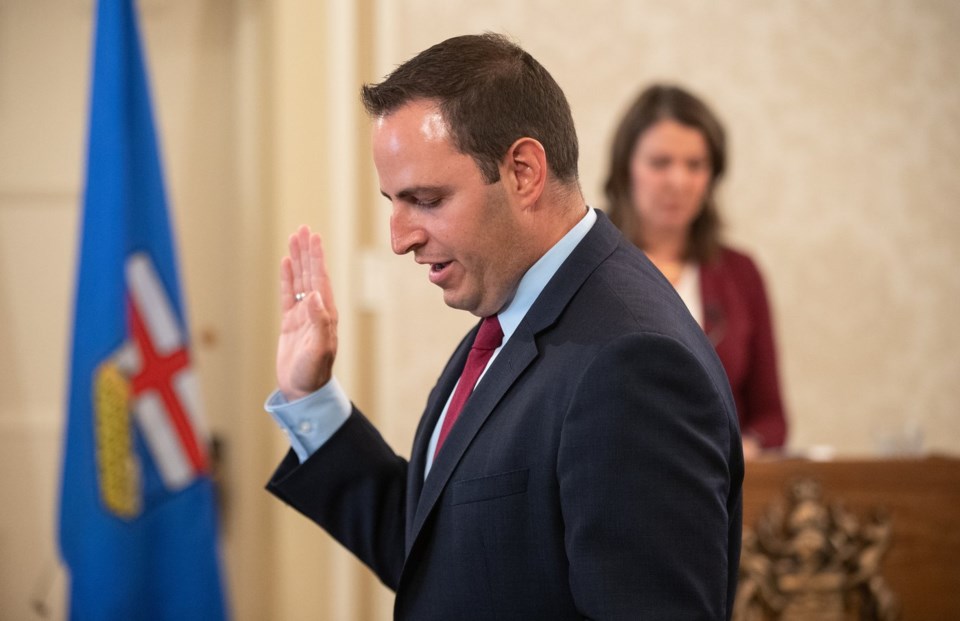EDMONTON — Alberta's education minister is dismissing concerns from the province's teachers' association that more mandatory testing cuts into classroom learning and can be detrimental to students.
Starting this month, those in kindergarten will need to take literacy and numeracy tests for the first time in Alberta.
Grade 1 to 3 students went through new screening in September and will do it again in January.
Alberta Teachers' Association president Jason Schilling told reporters Wednesday the extra assessments won't tell teachers anything about their students they didn't learn last fall while also introducing “test anxiety” that can harm kids.
But Education Minister Demetrios Nicolaides stood by the new assessments, saying in a statement to The Canadian Press they are rooted in scientific research.
"I’m really unsure why anyone would object to giving our teachers every possible tool to help their students," he said.
For Schilling, the sheer volume of added assessments is a problem.
With each one taking up to 30 minutes, he said teachers are losing an estimated three to five days of instruction time by having to test students individually outside the classroom.
“(That’s) time that could be spent on learning, collaboration and play,” he said.
By the association's count, students starting Grade 1 or kindergarten this year will go through up to 32 standardized tests by the time they leave Grade 6, as opposed to the 10 they would have done previously.
“This surge of testing has limited value to our students," said Schilling. "It also adds more work to the teachers’ already demanding schedules, along with an increased burden to school administrators."
Nicolaides said calling them standardized tests is, in this case, "wrong and misleading."
"These are screeners that gauge a student's literacy and numeracy strengths," he said.
"I am confident that parents would appreciate these insights and I’m further confident that teachers and schools would benefit from knowing which learners need more help."
Results are meant to give teachers, parents and Alberta Education a measure of how well students develop key skills.
An extra $10 million is going to school boards this academic year as part of the effort, including to hire additional staff.
Schilling said that’s only “a drop in the bucket” in a system already short of hundreds of millions of dollars in funding.
George Georgiou, University of Alberta education professor, said at a government announcement in December the assessments are important to help children to overcome early reading and math challenges.
He said the “quick screening tools” measuring things like letter knowledge can identify about 95 per cent of students who will later develop reading and numeracy difficulties.
“The earlier we provide the intervention to these students, the better chances we have to help them,” Georgiou said.
Still, Schilling said the tests assume knowledge about content that students have yet to learn, which can erode their confidence or lead to unnecessary frustration.
“(Kindergarten) tests include questions about number lines, for example, which is a concept that is not introduced until Grade 2.”
Some students who need special supports will be tested a third time before the end of the school year to see how well the interventions worked.
The screening will also become mandatory for students in Grades 4 and 5 starting in the fall.
Parents can opt out through a process that includes written notification to school administrators.
Schilling said the association isn’t opposed to testing students since it can help teachers better understand what kids need to learn.
“But what's the point of testing every student in this province multiple times a year to get the same information?” he said.
This report by The Canadian Press was first published Jan 8, 2025.
Lisa Johnson, The Canadian Press




